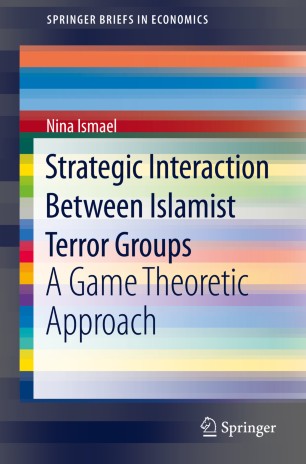

Most ebook files are in PDF format, so you can easily read them using various software such as Foxit Reader or directly on the Google Chrome browser.
Some ebook files are released by publishers in other formats such as .awz, .mobi, .epub, .fb2, etc. You may need to install specific software to read these formats on mobile/PC, such as Calibre.
Please read the tutorial at this link. https://ebooknice.com/page/post?id=faq
We offer FREE conversion to the popular formats you request; however, this may take some time. Therefore, right after payment, please email us, and we will try to provide the service as quickly as possible.
For some exceptional file formats or broken links (if any), please refrain from opening any disputes. Instead, email us first, and we will try to assist within a maximum of 6 hours.
EbookNice Team

Status:
Available5.0
31 reviewsThis book applies game theory to the phenomenon of terrorism and investigates how the competition for support can influence the attack behavior of terror organizations. In addition, it examines the economics of terrorism. The so-called outbidding theory, which has become increasingly popular within the field of terrorism research, argues that terror groups vying for resources will engage in more and more violence to demonstrate their capabilities and commitment to their cause. This book challenges the outbidding concept by providing a game-theoretical analysis, which shows that a contest between two terror groups can be interpreted as a race for support. This interpretation may help explain why major attacks occur at all: not as a result of outbidding, but as a result of losing the race. In addition, the author shows that rivalry between terror groups does not necessarily lead to more attacks, but can result in less terrorism due to an increased probability of attack failure induced by the race. Lastly, the model is applied to the rivalry between al-Qaeda and Daesh, elaborated on with empirical evidence. Given its scope, the book is a must read for researches and scholars working in the fields of economics, politics, the social sciences, and military history, as well as military and political decision-makers and authorities working in the field of risk management.